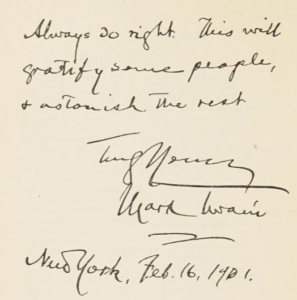THE DOCTOR: Oh, I always like to do the unexpected. Takes people by surprise.
Robert Holmes (1926-1986) British television screenwriter
Doctor Who (1963), 23×01 “The Trial of a Time Lord: The Mysterious Planet,” Part 1 (1985-01-05)
(Source)
(Source (Video)).
A number of sources start the second sentence with "It takes," which is not supported by the video.
Numbering for the story/serial within the season is controversial. Season 23 consisted of 14 episodes ("Part One" through "Part Fourteen") under the title "The Trial of a Time Lord." In turn, there were four distinct segments directed/written by different individuals, which were then separately novelized under new names (in this case, "The Mysterious Planet").
Quotations about:
expectations
Note not all quotations have been tagged, so Search may find additional quotes on this topic.
Hope is the boy, a blind, headlong, pleasant fellow, good to chase swallows with the salt; Faith is the grave, experienced, yet smiling man. Hope lives on ignorance; open-eyed Faith is built upon a knowledge of our life, of the tyranny of circumstance and the frailty of human resolution. Hope looks for unqualified success; but Faith counts certainly on failure, and takes honourable defeat to be a form of victory. Hope is a kind old pagan; but Faith grew up in Christian days, and early learnt humility.
In the one temper, a man is indignant that he cannot spring up in a clap to heights of elegance and virtue; in the other, out of a sense of his infirmities, he is filled with confidence because a year has come and gone, and he has still preserved some rags of honour. In the first, he expects an angel for a wife; in the last, he knows that she is like himself — erring, thoughtless, and untrue; but like himself also, filled with a struggling radiancy of better things, and adorned with ineffective qualities.Robert Louis Stevenson (1850-1894) Scottish essayist, novelist, poet
Essay (1881), “Virginibus Puerisque, Part 2”
(Source)
First published in Virginibus Puerisque and Other Papers, ch. 1, part 2 (1881).
If it were enough, to repent the last Day of thy Life; yet how canst thou be sure to do that; unless thou doest it this very Day? Since this Day may be (for ought thou knowest) thy last.
Thomas Fuller (1654-1734) English physician, preacher, aphorist, writer
Introductio ad Prudentiam, Vol. 2, # 2305 (1727)
(Source)
CHORUS: Many are the forms of what is unknown.
Much that the gods achieve is surprise.
What we look for does not come to pass;
God finds a way for what none foresaw.
Such was the end of this story.[ΧΟΡΟΣ: πολλαὶ μορφαὶ τῶν δαιμονίων,
πολλὰ δ᾽ ἀέλπτως κραίνουσι θεοί:
καὶ τὰ δοκηθέντ᾽ οὐκ ἐτελέσθη,
τῶν δ᾽ ἀδοκήτων πόρον ηὗρε θεός.
τοιόνδ᾽ ἀπέβη τόδε πρᾶγμα.]Euripides (485?-406? BC) Greek tragic dramatist
Helen [Ἑλένη], l. 1688ff, final lines (412 BC) [tr. Lattimore (1956)]
(Source)
See here for more discussion about Euripides' "standard" choral coda.
(Source (Greek)). Other translations:With various hands the gods dispense our fates;
Now show'ring various blessings, which our hopes
Dared not aspire to; now controuling ills
We deem'd inevitable: thus the god
To these hath giv'n an end exceeding thought.
Such is the fortune of this happy day.
[tr. Potter (1783)]A thousand shapes our varying fates assume
The gods perform what least expect,
And oft the things for which we fondly hoped
Come not to pass; but Heaven still finds a clue
To guide our steps through live's perplexing maze,
And thus doth this important business end.
[tr. Wodhull (1809)]Many are the forms of things connected with the deities, and many things the Gods perform contrary to our expectations. But those things which we looked for are not accomplished; but the God hath brought to pass things not looked for. Thus has this matter turned out.
[tr. Buckley (1850)]Many are the forms of divinities, and many things the gods bring to pass unhoped for. And what was expected has not been fulfilled; for what was not expected, a god finds a way. Such was the result of this action.
[tr. Coleridge (1891)]Many are the forms the heavenly will assumes; and many a thing God brings to pass contrary to expectation: that which was looked for is not accomplished, while Heaven finds out a way for what we never hoped; e'en such has been the issue here.
[tr. Coleridge (alt.)]O the works of the Gods -- in manifold wise they reveal them:
Manifold things unhoped for the Gods to accomplishment bring.
And the things that we looked for, the Gods deign not to fulfil them;
And the paths undiscerned of our eyes, the Gods unseal them.
So fell this marvelous thing.
[tr. Way (Loeb) (1912)]In diverse ways the gods fulfil
The secret purpose of their will.
We say, this thing shall surely be,
And lo! it cometh not. We say
This is denied by destiny;
God findeth out a way.
So hath this story's strange conclusion shown,
The secrets of the gods rest still unknown.
[tr. Sheppard (1925)]Many indeed the shapes and changes are
of heavenly beings. Many things the gods
achieve beyond our judgment. What we thought
is not confirmed, and what we thought not god
contrives. And so it happens in this story.
[tr. Warner (1951)]The gods reveal themselves in many forms,
Bring many matters to surprising ends.
The things we thought would happen do not happen;
The unexpected God makes possible:
And this is what has happened here to-day.
[tr. Vellacott (1954)]Heaven has many faces.
The gods bring to pass many things we never hoped for,
While what we wait to see happen ... never does.
And for what we never even dreamed could be,
God finds a way.
And so it happened here today.
[tr. Meagher (1986)]Many are the forms the plans of the gods take and many the things they accomplish beyond men's hopes. What men expect does not happen; for the unexpected heaven finds a way. And so it has turned out here today.
[tr. Davie (2002)]Many are the forms the heavenly will assumes; and many a thing God brings to pass contrary to expectation: that which was looked for is not accomplished, while Heaven finds out a way for what we never hoped; e'en such as been the issue here.
[tr. Athenian Society (2006)]The deeds of the gods take many forms.
And gods often perform deeds even beyond our hopes.
Our wishes might not be granted but the gods will find ways of achieving what we never thought was achievable.
Such was the path of our story.
[tr. Theodoridis (2011)]Divinities take many shapes;
the gods accomplish things surpassing hope.
Expected things don’t come to pass;
and God finds ways for unexpected things.
And that’s how this affair turned out.
[tr. Ambrose et al. (2018)]Many are the forms of divinities, and many things the gods bring to pass unhoped for. And what was expected has not reached a telos; for what was not expected, a god finds a way. Such was the result of this action.
[tr. Coleridge / Helen Heroization Team]
CALVIN: Some days you get up and you already know that things aren’t going to go well. They’re the type of days when you should just give in, put your pajamas back on, make some hot chocolate, and read comic books in bed with the covers up until the world looks more encouraging.
He who expekts to be praized every time he duz a virtewous thing will soon git tired of the bizzness.
[He who expects to be praised every time he does a virtuous thing will soon get tired of the business.]
Josh Billings (1818-1885) American humorist, aphorist [pseud. of Henry Wheeler Shaw]
Josh Billings’ Farmer’s Allminax, 1875-07 (1875 ed.)
(Source)
The man who underestimates himself is perpetually being surprised by success, whereas the man who overestimates himself is just as often surprised by failure. The former kind of surprise is pleasant, the latter unpleasant. It is therefore wise to be not unduly conceited, though also not too modest to be enterprising.
Bertrand Russell (1872-1970) English mathematician and philosopher
Conquest of Happiness, Part 2, ch. 10 “Is Happiness Still Possible?” (1930)
(Source)
The success of most things depends upon knowing [well] how much time is needed to succeed.
[Les succès de la plupart des choses dépend de savoir combien il faut de temps pour réussir.]
Charles-Lewis de Secondat, Baron de Montesquieu (1689-1755) French political philosopher
Pensées Diverses [Assorted Thoughts], # 1007 “General Maxims of Politics,” No. 15 (1720-1755) [tr. Clark (2012)]
(Source)
(Source (French)). Other translations:In most things success depends on knowing how long it takes to succeed.
[E.g. (1874)]Success in most things depends on knowing how long it takes to succeed.
[E.g. (1883)]The success of most things depends upon knowing how long it will take to succeed.
[E.g. (1915)]Success in the majority of circumstances depends on knowing how long it takes to succeed.
[E.g.]Success generally depends upon knowing how long it takes to succeed.
[E.g.]
The man who will live above his present circumstances is in great danger of living in a little time much beneath them; or as the Italian proverb runs, “The man who lives by hope, will die by hunger.”
Joseph Addison (1672-1719) English essayist, poet, statesman
Essay (1711-10-09), The Spectator, No. 191
(Source)
Even the greatest actions of a celebrated person labour under this disadvantage, that, however surprising and extraordinary they may be, they are no more than what are expected from him; but, on the contrary, if they fall any thing below the opinion that is conceived of him, though they might raise the reputation of another, they are diminution to his.
Joseph Addison (1672-1719) English essayist, poet, statesman
Essay (1711-12-24), The Spectator, No. 256
(Source)
Forecasting by bureaucrats tends to be used for anxiety relief rather than for adequate policy making.
Nassim Nicholas Taleb (b. 1960) Lebanese-American essayist, statistician, risk analyst, aphorist
The Black Swan, Part 2, ch. 10 “The Scandal of Prediction” (2007)
(Source)
To be suddenly snuffed out in the middle of ambitious schemes, is tragical enough at best; but when a man has been grudging himself his own life in the meanwhile, and saving up everything for the festival that was never to be, it becomes that hysterically moving sort of tragedy which lies on the confines of farce.
Don’t cross a river if it is four feet deep on average.
Nassim Nicholas Taleb (b. 1960) Lebanese-American essayist, statistician, risk analyst, aphorist
The Black Swan, Part 2, ch. 10 “The Scandal of Prediction” (2007)
(Source)
That, Senators, is what a favour from gangsters amounts to. They refrain from murdering someone; then they boast that they have spared him!
[Quod est aliud, patres conscripti, beneficium latronum, nisi ut commemorare possint iis se dedisse vitam, quibus non ademerint?]
Marcus Tullius Cicero (106-43 BC) Roman orator, statesman, philosopher
Philippics [Philippicae; Antonian Orations], No. 2, ch. 3 / sec. 5 (3.3/3.5) (44-10-24 BC) [tr. Grant (1960)]
(Source)
(Source (Latin)). Other translations:What other services, my lords, can robbers render, save that they can claim to have given life to those whose lives they spare?
[tr. King (1877)]How; are brigands "benefactors," except in being able to assert that they have granted life to those from whom they have not taken it?
[tr. Ker (Loeb) (1926)]Us not this, O conscript fathers, such a kindness as is done by banditti, who are contented with being able to boast that they have granted their lives to all those men whose lives they have not taken?
[tr. Yonge (1903)]How else can brigands confer a favour, conscript fathers, except by asserting that they have granted life to those from whom they have not taken it away?
[tr. Berry (2006)]What is the kindness of outlaws, members of the Senate, other than their ability to remind us that they gave life to people from whom they did not steal it?
[tr. McElduff (2011)]
Blessed is he that expects nothing, for he shall never be disappointed.
Benjamin Franklin (1706-1790) American statesman, scientist, philosopher, aphorist
Poor Richard (1739 ed.)
(Source)
The earliest recorded usage of this phrase is actually Alexander Pope (1727), though Pope says he had devised it many years earlier. Modeled after the Beatitudes in the New Testament.
The time tew be karefullest iz when we hav a hand full ov trumps.
[The time to be carefullest is when we have a hand full of trumps.]
Josh Billings (1818-1885) American humorist, aphorist [pseud. of Henry Wheeler Shaw]
Josh Billings’ Farmer’s Allminax, 1870-06 (1870 ed.)
(Source)
Repeated in Everybody's Friend, Or; Josh Billing's Encyclopedia and Proverbial Philosophy of Wit and Humor, ch. 156 "Affurisms: Embers on the Harth" (1874).
Radulfus had the wise man’s distant respect for perfection, but no great expectation of meeting it in the way.
Ellis Peters (1913-1995) English writer, translator [pseud. of Edith Mary Pargeter, who also wrote under the names John Redfern, Jolyon Carr, Peter Benedict]
Brother Cadfael’s Penance, ch. 1 (1994)
(Source)
Quite a few of the editorials have shown what the court ought to have done. We are always saying let the law take its course but what we really mean is “Let the law take our course.”
Will Rogers (1879-1935) American humorist
Column (1935-02-19), “Daily Telegram: Mr. Rogers Saw Warning in the Decision on Gold”
(Source)
Referring to the Supreme Court "Gold Clause" cases, particularly Perry v. U.S., which allowed the federal government to not pay its debts in gold.
This innocent country set you down in a ghetto in which, in fact, it intended that you should perish. Let me spell out precisely what I mean by that, for the heart of the matter is here, and the root of my dispute with my country. You were born where you were born and faced the future that you faced because you were black and for no other reason. The limits of your ambition were, thus, expected to be set forever. You were born into a society which spelled out with brutal clarity, and in as many ways as possible, that you were a worthless human being. You were not expected to aspire to excellence: you were expected to make peace with mediocrity.
James Baldwin (1924-1987) American novelist, playwright, activist
The Fire Next Time, “My Dungeon Shook” (1963)
(Source)
The others you know without my telling you. They are such fools that they seem to expect that, though the Republic is lost, their fish-ponds will be safe.
[Ceteros iam nosti; qui ita sunt stulti, ut amissa re publica piscinas suas fore salvas sperare videantur.]
Marcus Tullius Cicero (106-43 BC) Roman orator, statesman, philosopher
Epistulae ad Atticum [Letters to Atticus], Book 1, Letter 18, sec. 6 (1.18.6) (60 BC) [tr. Shuckburgh (1900)]
(Source)
(Source (Latin)). Alternate translation:The others you know well enough -- fools who seem to hope that their fish-ponds may be saved, though the country go to rack and ruin.
[tr. Winstedt (1912)]As for the rest of the Optimates, you know them. They are so stupid as to suppose that their own fishponds can be unharmed even though the constitution go to pot.
[tr. McKinlay (1926), # 13]The others you know. They seem fools enough to expect to keep their fish-ponds after losing constitutional freedom.
[tr. Shackleton Bailey (1968)]
Men’s ideas are like card-playing or any other game. Ideas which in the past I’ve seen considered reckless have since become commonplace, almost trivial, and adopted by men unworthy of sharing them. Ideas which now seem extraordinary will be regarded feeble and perfectly ordinary by our descendants.
[Les idées des hommes sont comme les cartes et autres jeux. Des idées que j’ai vu autrefois regarder comme dangereuses et trop hardies, sont depuis devenues communes, et presque triviales, et ont descendu jusqu’à des hommes peu dignes d’elles. Quelques-unes de celles à qui nous donnons le nom d’audacieuses seront vues comme faibles et communes par nos descendans.]Nicolas Chamfort (1741-1794) French writer, epigrammist (b. Nicolas-Sébastien Roch)
Products of Perfected Civilization [Produits de la Civilisation Perfectionée], Part 1 “Maxims and Thoughts [Maximes et Pensées],” ch. 2, ¶ 145 (1795) [tr. Parmée (2003), ¶ 115]
(Source)
(Source (French)). Alternate translations:Men’s ideas are like cards and other games. Ideas which I remember to have seen regarded as dangerous and over-bold have since become commonplace and almost trite, and have descended to men little worthy of them. So it is that some of the ideas which to-day we call audacious will be considered feeble and conventional by our descendants.
[tr. Hutchinson (1902), "The Cynic's Breviary"]Man's ideas are like card & other games. Ideas which I once heard stigmatised as dangerous and over-daring have since become common and even trivial, and have sunk to be the tenets of quite unworthy persons. Some ideas which we call audacious nowadays will seem feeble and ordinary to our descendants.
[tr. Mathers (1926)]The ideas of men are like cards and other games. ideas that at one time, to my own knowledge, were considered dangerous and rash, have since become general, almost commonplace, and have descended to men who are little worthy of them. Some of those that we call daring will seem feeble and ordinary to our descendants.
[tr. Merwin (1969)]The ideas of men are like cards and other games. Some ideas, which formerly I observed to be considered dangerous and intemperate, have since become universal, even trivial, and have been adopted by men scarcely worthy of them. Some notions which we call bold will be regarded as feeble and commonplace by our descendants.
[tr. Pearson (1973)]
MACBETH: I bear a charmèd life, which must not yield
To one of woman born.MACDUFF: Despair thy charm,
And let the angel whom thou still hast served
Tell thee Macduff was from his mother’s womb
Untimely ripped.MACBETH: Accursèd be that tongue that tells me so,
For it hath cowed my better part of man!William Shakespeare (1564-1616) English dramatist and poet
Macbeth, Act 5, sc. 8, l. 15ff (5.8.15-22) (1606)
(Source)
The trouble with me, he thought unhappily, is that I have been about the world long enough to know that God’s plans for us, however infallibly good, may not take the form that we expect and demand.
Ellis Peters (1913-1995) English writer, translator [pseud. of Edith Mary Pargeter, who also wrote under the names John Redfern, Jolyon Carr, Peter Benedict]
One Corpse Too Many, ch. 12 (1979)
(Source)
There are those who will thank you for what you gave them and others who will blame you for what you did not give them.
Nassim Nicholas Taleb (b. 1960) Lebanese-American essayist, statistician, risk analyst, aphorist
The Bed of Procrustes: Philosophical and Practical Aphorisms, “Ethics” (2010)
(Source)
I dreamed once that I was going to be hanged; but I was not at all surprised about it. Nobody was. My relations came to see me off, I thought, and to wish me “Good-by!” They all came, and were all very pleasant; but they were not in the least astonished — not one of them. Everybody appeared to regard the coming tragedy as one of the most-naturally-to-be-expected things in the world.
Jerome K. Jerome (1859-1927) English writer, humorist [Jerome Klapka Jerome]
“Dreams” (1886)
(Source)
Don’t say “When I have time I will learn,” lest you never have time.
[וְאַל תֹּאמַר לִכְשֶׁאִפָּנֶה אֶשְׁנֶה, שֶׁמָּא לֹא תִפָּנֶה:]
Hillel (1st C. BC-1st C. AD) Jewish sage, rabbi [הלל]
Mishna, Seder Nezikin [Order of Damages], Pirkei Avot [Chapters of the Fathers] 2:4
(Source)
(Source (Hebrew)). Alternate translations:Say not, When I have leisure I will study; perchance thou mayest not have leisure.
[tr. Taylor (1897)]Say not: ‘when I shall have leisure I shall study;’ perhaps you will not have leisure.
[tr. Gorfinkle (1913)]Say not: ‘when I shall have leisure I shall study;’ perhaps you will not have leisure.
[tr. Kulp]Do not say: When I can free myself [of my affairs] I shall learn (Torah); perhaps you will not free yourself.
[tr. Shraga Silverstein]Do not say, "When I will be available I will study [Torah]," lest you never become available.
[Open Mishnah]Do not say "When I have leisure, I will study," perhaps you will not have leisure.
[Source]Say not, "When I have free time I shall study"; for you may perhaps never have any free time.
If you are brave too often, people will come to expect it of you.
Mignon McLaughlin (1913-1983) American journalist and author
The Second Neurotic’s Notebook, ch. 5 (1966)
(Source)
Men should not be too smug in their own reason;
only a foolish man will walk his field
and count his ears too early in the season;
for I have seen a briar through winter’s snows
rattle its tough and menacing bare stems,
and then, in season, open its pale rose.
and I have seen a ship cross all the main,
true to its course and swift, and then go down
just as it entered its home port again.[Non sien le genti, ancor, troppo sicure
a giudicar, sì come quei che stima
le biade in campo pria che sien mature;
ch’i’ ho veduto tutto ’l verno prima
lo prun mostrarsi rigido e feroce,
poscia portar la rosa in su la cima;
e legno vidi già dritto e veloce
correr lo mar per tutto suo cammino,
perire al fine a l’intrar de la foce.]Dante Alighieri (1265-1321) Italian poet
The Divine Comedy [Divina Commedia], Book 3 “Paradiso,” Canto 13, l. 130ff (13.130-138) [Thomas Aquinas] (1320) [tr. Ciardi (1970)]
(Source)
(Source (Italian)). Alternate translations:Let none presume to fix his final state,
Or on such awful question hold debate;
Oft have I seen the vernal stem beguile
The reaper's hand: and oft the rigid thorn,
That to the blast of winter waves forlorn,
In June with rosy wreath is seen to smile.
Oft-times the bark that feuds with prosp'rous gale
Thro' the dividing waves with flowing sail.
Yet sinks in view of port, the pious man
May fail.
[tr. Boyd (1802), st. 23-24]Let not the people be too swift to judge,
As one who reckons on the blades in field,
Or ere the crop be ripe. For I have seen
The thorn frown rudely all the winter long
And after bear the rose upon its top;
And bark, that all the way across the sea
Ran straight and speedy, perish at the last,
E’en in the haven’s mouth.
[tr. Cary (1814)]Let not the people be too swift to judge,
Like one who looks upon the springing blade,
As if the harvest were already made.
For I have seen, the whole of winter long,
The thorn look rude and rough, and bare at top,
And after show the rose's reddening cup;
And seen the bark, already swift direct
Across the sea, in all its journey's way,
Perish at last when entering in the bay.
[tr. Bannerman (1850)]Nor yet shall people be too confident
In judging, even as he is who doth count
The corn in field or ever it be ripe.
For I have seen all winter long the thorn
First show itself intractable and fierce,
And after bear the rose upon its top;
And I have seen a ship direct and swift
Run o'er the sea throughout its course entire,
To perish at the harbour's mouth at last.
[tr. Longfellow (1867)]Let not the folk be yet too secure at judging, like him who values the corn in a field before it is ripe; for I have seen all winter long the plum-tree at first show itself rigid and stern, and afterward bear blossoms on its top ; and I saw on a time a craft trim and swift to sail the sea for its whole course, perish at the last in the entering of the sound.
[tr. Butler (1885)]Let not the people think themselves elected
To judge like one who counteth on the corn
Within his field ere it be ripe.
Dejected I have beheld through winter time a thorn
Its rude repelling aspect show, and bear
After a rose, upon its top forlorn.
And I have seen a vessel swiftly steer
Through all its voyage across the ocean stream.
Perish at last, the harbour's entrance near.
[tr. Minchin (1885)]Let not the people still be too secure in judgment, like him who reckons up the blades in the field ere they are ripe. For I have seen the briar first show itself stiff and wild all winter long, then bear the rose upon its top. And I have seen a bark ere now ran straight and swift across the sea through all its course, to perish at last at entrance of the harbor.
[tr. Norton (1892)]Let not folk yet be too secure in judgment, as who should count the ears upon the field ere they be ripe;
for I have seen first all the winter through the thorn display itself hard and forbidding and then upon its summit bear the rose;
and I have seen ere now a ship fare straight and swift over the sea through her entire course, and perish at the last, entering the harbour mouth.
[tr. Wicksteed (1899)]So also let not the people be too sure in judging, like those that reckon the corn in the field before it is ripe. For I have seen the briar first show harsh and rigid all through the winter and later bear the rose upon its top, and once I saw a ship that ran straight and swift over the sea through all its course perish at the last entering the harbour.
[tr. Sinclair (1939)]Let not the people be too self-assured
In judging early, as who should count the rows
Of green blades in the field ere they matured.
For I have seen how first the wild-brier shows
Her sprays, all winter through, thorny and stark,
And then upon the topmost bears the rose;
And I have seen ere now a speeding barque
Run all her sea-course with unswerving stem
And close on harbour go down to the dark.
[tr. Binyon (1943)]No one should ever be too self-assured
In judgement, like a farmer reckoning
His gains before the corn-crop is matured,
For I have seen the briar, a prickly thing
And tough the winter through, and on its tip
Bearing the very rose at close of spring;
And once I saw, her whole long ocean trip
Safe-done, a vessel wrecked upon the bar,
And down she went, that swift and stately ship.
[tr. Sayers/Reynolds (1962)]Moreover, let not folk be too secure in judgment, like one who should count the ears in the field before they are ripe; for I have seen first, all winter through, the thorn display itself hard and stiff, and then upon its summit bear the rose. And I have seen ere now a ship fare straight and swift over the sea through all her course, and perish at the last as she entered the harbor.
[tr. Singleton (1975)]Let people not be too sure of themselves
And their judgement, like someone who reckons
The field of corn before the ears are ripe:
For I have seen all the winter through
The thorn first show itself unyielding, wild,
And after all carry a rose on top;
And I have seen a ship sail straight and swiftly
Over the sea for the whole of its voyage
Yet perish at last at the harbour mouth.
[tr. Sisson (1981)]So too, let men not be too confident
in judging -- witness those who, in the field,
would count the ears before the corn is ripe;
for I have seen, all winter through, the brier
display itself a stiff and obstinate,
and later, on its summit, bear the rose;
and once I saw a ship sail straight and swift
through all its voyaging across the sea,
then perish at the end, at harbor entry.
[tr. Mandelbaum (1984)]Nor should one be too quick to trust his judgment;
be not like him who walks his field and counts
the ears of corn before the time is ripe,
for I have seen brier all winter long
showing its rough and prickly stem, and then
eventually produce a lovely rose,
and I have seen a ship sail straight and swift
over the sea through all its course, and then
about to enter in the harbor, sink.
[tr. Musa (1984)]And let not people be too sure to judge, like one who appraises the oats in the field before they are ripe:
for I have seen all the previous winter long the thornbush appear rigid and and fierce, but later bear the rose upon its tip,
and I have seen a ship run straight and swift across the sea for all in its course, only to perish at last when entering the port.
[tr. Durling (2011)]Do not let people be too secure in their judgements, like those who count the ears of corn in the field before the crop ripens, since I have seen, all winter long, the thorn display itself, sharp and forbidding, and then on its summit bear the rose; and before now I have seen a ship run straight and sure over the sea for her entire course, and sink in the end, entering the harbour mouth.
[tr. Kline (2002)]And then again, don't let folk be too sure
in passing judgement as do those who price
the harvest in the field before it's ripe.
For I have seen, at first, all winter through
a thorn bush shows itself as stark and fierce,
which after bears a rose upon its height.
And I have seen a keel, steered swift and well,
speed over oceans all its voyage through,
then perish at the entrance to the dock.
[tr. Kirkpatrick (2007)]Let the people, then, not be too certain
in their judgments, like those that harvest in their minds
corn still in the field before it ripens.
For I have seen the briar first look dry and thorny
right through all the winter's cold,
then later wear the bloom of roses at its tip,
and once I saw a ship, which had sailed straight
and swift upon the sea through all its voyage,
sinking at the end as it made its way to port.
[tr. Hollander/Hollander (2007)]But ordinary people, too, must guard
Their judgment, not like those who count up ears
Of corn before the field is ripe. For I
Have seen, all winter through, bushes of thorn
Covered with small but savage knives, hard
And fierce, but now comes summer, and they they're roses
All over. And I have seen a ship sail far,
Straight and swift, and on course, but once in the harbor
Down she goes, sinking like a stone.
[tr. Raffel (2010)]
It is well we cannot see into the future. There are few boys of fourteen who would not feel ashamed of themselves at forty.
Jerome K. Jerome (1859-1927) English writer, humorist [Jerome Klapka Jerome]
Idle Thoughts of an Idle Fellow, “On Memory” (1886)
(Source)
First published in Home Chimes (1885-09-26).
Love gives no warning and no quarter; it is sneaky and cruel; if we weren’t so lonely, we’d never put up with it.
Mignon McLaughlin (1913-1983) American journalist and author
The Second Neurotic’s Notebook, ch. 5 (1966)
(Source)
He is her glory. Any woman could say it. For every one of them, God is in her child. Mothers of great men must have been familiar with this feeling, but then, all women are mothers of great men — it isn’t their fault if life disappoints them later.
Boris Pasternak (1890-1960) Russian poet, novelist, and literary translator
Doctor Zhivago [До́ктор Жива́го], Part 2, ch. 9 “Varykino,” sec. 3 [Yury] (1955) [tr. Hayward & Harari (1958), US ed.]
(Source)
Comparing all motherhood to that of Mary toward Jesus.
Alternate translations:He is her glory. Any woman could say it. For every one of them, God is in her child. Mothers of great men must have this feeling particularly, but then, at the beginning, all women are mothers of great men -- it isn’t their fault if life disappoints them later.
[tr. Hayward & Harari (1958), UK ed.]He is her glory. Every woman can say the same. Her god is in her child. Mothers of great people should be familiar with that feeling. But decidedly all mothers are mothers of great people, and it is not their fault that life later disappoints them.
[tr. Pevear & Volokhonsky (2010)]
It is not rude to turn off your telephone by switching it on to an answering machine, which is cheaper and less disruptive than ripping it out of the wall. Those who are offended because they cannot always get through when they seek, at their own convenience, to barge in on people are suffering from a rude expectation.
We moderns do not believe in demigods, but our smallest hero we expect to feel and act as a demigod.
[Wir Neuern glauben keine Halbgötter, aber der geringste Held soll bei uns wie ein Halbgott empfinden, und handeln.]
Gotthold Lessing (1729-1781) German playwright, philosopher, dramaturg, writer
Laocoön, or the Limitations of Painting and Poetry [Laokoön oder Über die Grenzen der Malerei und Poesie], ch. 4 (1767) [tr. Phillimore (1874)]
(Source)
(Source (German)). Alternate translation:We moderns are no believers in demi-gods, yet the least important hero among us is expected to feel and act like one.
[tr. Ross (1836)]
In great actions men show themselves as they ought to be, in small actions as they are.
[Dans les grandes choses, les hommes se montrent comme il leur convient de se montrer; dans les petites, ils se montrent comme ils sont.]
Nicolas Chamfort (1741-1794) French writer, epigrammist (b. Nicolas-Sébastien Roch)
Products of Perfected Civilization [Produits de la Civilisation Perfectionée], Part 1 “Maxims and Thoughts [Maximes et Pensées],” ch. 1, ¶ 52 (1795) [tr. Hutchinson (1902), “The Cynic’s Breviary”]
(Source)
(Source (French)). Alternate translations:In great matters men show themselves as they ought; in little, as they are.
[tr. Mathers (1926)]In affairs of importance, men show themselves at their best advantage; in small matters they are seen as they are.
[tr. Merwin (1969)]In great things, men show themselves as they want to be seen; and in little ones they show themselves as they are.
[tr. Siniscalchi (1994)]In important matters, men display themselves as they want to be seen; in minor matters as they really are.
[tr. Parmée (2003), ¶45]
For tho’ I know he loves me,
To-night my heart is sad;
His kiss was not so wonderful
As all the dreams I had.Sara Teasdale (1884-1933) American lyrical poet
“The Kiss,” Helen of Troy and Other Poems (1911)
(Source)
HARRIS: SanDeE*, your … your breasts feel weird.
SanDeE*: Oh, that’s ’cause they’re real.
Steve Martin (b. 1945) American comedian, actor, writer, producer, musician
L. A. Story (1991)
(Source)
He that waits upon Fortune, is never sure of a Dinner.
Benjamin Franklin (1706-1790) American statesman, scientist, philosopher, aphorist
Poor Richard (1734 ed.)
(Source)
Children have an uncanny way of living up — or down — to what is expected of them.
Ann Landers (1918-2002) American advice columnist [pseud. for Eppie Lederer]
“Parenthood: What Do You Owe Your Children?” Family Circle (1977-11)
(Source)
Collected in The Ann Landers Encyclopedia (1978).
It’s a good thing when a man is different from your image of him. It shows he isn’t a type. If he were, it would be the end of him as a man. But if you can’t place him in a category, it means that at least a part of him is what a human being ought to be. He has risen above himself, he has a grain of immortality.
Boris Pasternak (1890-1960) Russian poet, novelist, and literary translator
Doctor Zhivago [До́ктор Жива́го], Part 2, ch. 9 “Varykino,” sec. 4 [Yuri] (1955) [tr. Hayward & Harari (1958), US ed.]
(Source)
Alternate translations:It’s a good thing when a man is different from your image of him. It shows he isn’t a type. If he were, it would be the end of him as a man. But if you can’t place him in a category, it means that at least a part of him is what a human being ought to be. He has a grain of immortality.
[tr. Hayward & Harari (1958), UK ed.]It’s good when a man deceives your expectations, when he doesn’t correspond to the preconceived notion of him. To belong to a type is the end of a man, his condemnation. If he doesn’t fall under any category, if he’s not representative, half of what’s demanded of him is there. He’s free of himself, he has achieved a grain of immortality.
[tr. Pevear & Volokhonsky (2010)]
Yet they, believe me, who await
No gifts from chance, have conquered fate.Matthew Arnold (1822-1888) English poet and critic
“Resignation,” The Strayed Reveller and Other Poems (1848)
(Source)
“If Mr. Darcy is neither by honour nor inclination confined to his cousin, why is not he to make another choice? And if I am that choice, why may not I accept him?”
“Because honour, decorum, prudence, nay, interest, forbid it. Yes, Miss Bennet, interest; for do not expect to be noticed by his family or friends, if you wilfully act against the inclinations of all. You will be censured, slighted, and despised, by everyone connected with him. Your alliance will be a disgrace; your name will never even be mentioned by any of us.”
“These are heavy misfortunes,” replied Elizabeth. “But the wife of Mr. Darcy must have such extraordinary sources of happiness necessarily attached to her situation, that she could, upon the whole, have no cause to repine.”Jane Austen (1775-1817) English author
Pride and Prejudice, ch. 56 [Elizabeth and Lady Catherine] (1813)
(Source)
Every human being, like every animal, wants to live in what is felt to be a safe environment — an environment where you won’t be exposed to unexpected peril. Now, when a man tells you that something you’ve always believed was in fact not true, it gives you a frightful shock and you think, “Oh! I don’t know where I am. When I think I’m planting my foot upon the ground, perhaps I’m not.” And you get into a terror.
Bertrand Russell (1872-1970) English mathematician and philosopher
Interview by Woodrow Wyatt, BBC TV (1959)
On resistance to scientific discovery.
Collected in Bertrand Russell's BBC Interviews (1959) [UK] and Bertrand Russell Speaks His Mind (1960) [US]. Reprinted (abridged) in The Humanist (1982-11/12), and in Russell Society News, #37 (1983-02).
If you do not expect the unexpected, you will not find it; for it is hard to be sought out and difficult.
[ἐὰν μὴ ἔλπηται ἀνέλπιστον οὐκ ἐξευρήσει, ἀνεξερεύνητον ἐὸν καὶ ἄπορον]Heraclitus of Ephesus (c.540-c.480 BC) Greek philosopher [Ἡράκλειτος, Herákleitos, Heracleitus]
Fragment 18 [tr. Burnet (1920), DK B18]
(Source)
(Source (Greek)). Alternate translations:He who does not expect will not find out the unexpected, for it is trackless and unexplored.
[tr. Kahn (1981), VI (D. 18)]He who does not expect the unexpected will not find it out.
[tr. Kahn (1981), VI (D. 18), variant]He who does not expect the unexpected will not find it, since it is trackless and unexplored.
[tr. Allan (2008)]Unless you expect the unexpected, you will not find it, for it is hidden and thickly tangled.
[tr. Jenks (2014)]
Poor fool, what makes you promise yourself a long life, when there is not a day of it that goes by in security? Again and again, people who looked forward to a long life have been caught out over it, called away quite unexpectedly from this bodily existence. Nothing commoner than to be told, in the course of conversation, how such a man was stabbed, such a man was drowned; how one fell from a height and broke his neck, another never rose from table, another never finished his game of dice. Fire and sword, plague and murderous attack, it is always the same thing — death is the common end that awaits us all, and life can pass suddenly, like a shadow when the sun goes in.
[Ha stulte, quid cogitas te diu victurum, cum nullum diem habeas securum? Quam multi decepti sunt et insperati de corpore extracti! Quoties audisti a dicentibus, quia ille gladio cecidit, ille submersus est, ille ab alto ruens cervicem fregit, ille manducando obriguit, ille ludendo finem fecit, alius igne, alius ferro, alius peste, alius latrocinio interiit: et sic omnium finis mors est, et vita hominum tanquam umbra cito pertransit.]Thomas à Kempis (c. 1380-1471) German-Dutch priest, author
The Imitation of Christ [De Imitatione Christi], Book 1, ch. 23, v. 7 (1.23.7) (c. 1418-27) [tr. Knox-Oakley (1959)]
(Source)
(Source (Latin)). Alternate translations:Thou art a fool, if thou think to live long, sith thou art not sure to live one day to the end. How many have been deceived through trust of long life, and suddenly have been taken out of this world or they had thought. How oft hast thou heard say that such a man was slain, and such a man was drowned, and such a man fell and broke his neck ? This man as he ate his meat was strangled, and this man as he played took his death ; one with fire, another with iron, another with sickness, and some by theft have suddenly perished ! And so the end of all men is death, for the life of man as a shadow suddenly fleeth and passeth away.
[tr. Whitford/Raynal (1530/1871)]You are foolish if you think to live long, since you are not certain to live one day through to the end. How many have been deceived through trusting in a long life who have suddenly been taken out of the world much sooner than they had thought. How often have you heard that such a man was slain, and such a man was drowned, and such a man fell and broke his neck; this man choked on his food, and this man died in his recreation; one by fire, another by the sword, another by sickness, and some by theft have suddenly perished. And so the end of all men is death, and the life of man is as a shadow which suddenly glides and passes away.
[tr. Whitford/Gardiner (1530/1955)]Ah foole, why dost thou think to live long, when thou canst not promise to thy selfe one day, how many have been deceived and suddenly snatcht away? How often dost thou hear these reports, such a man is slain, another is drowned, a third breaks his neck with a fall, this man died eating, and that man playing? One perished by fire, another by the sword, another of the plague, and another was slain by theeves, thus death is the end of all, and mans life passeth away like a shadow.
[tr. Page (1639), 1.23.29-31]Does any Confidence of long Life encourage you to defer putting this good Advice in Execution speedily ? Nay, but reflect, fond Man, how little you can promise your self one poor single Day. How many Instances have you before your Eyes, or fresh in your Remembrance, of Persons miserably deluded and disappointed in this Hope, and hurried out of the Body without any warning at all? How often have you been surprized with the News of this Friend being run thro', another drowning crossing the Water, a Third breaking his Neck by a Fall, a Fourth fallen down dead at Table, or choaked with his Meat, a Fifth seized with an Apoplex at Play, a Sixth burnt in his Bed, a Seventh murthered, an Eighth killed by Thieves, a Ninth struck with Lightning, or Blasting, or Pestilence, a Tenth swallow'd up in an Earthquake. Such vast variety of Deaths surround us, and so fleeting a Shadow is the Life of a Man.
[tr. Stanhope (1696; 1706 ed.)]Ah foolish man! why dost thou still flatter thyself with the expectation of a long life, when thou canst not be sure of a single day? How many unhappy fools, deluded by this hope, are in some unexpected moment separated from the body! How often dost thou hear, that one is slain, another is drowned, another by falling from a precipice has broken his neck, another is choaked in eating, another has dropt down dead in the exercise of some favorite diversion; and that thousands, indeed, are daily perishing by fire, by sword, by the plague, or by the violence of robbers! Thus is death common to every age; and man suddenly passeth away as a vision of the night.
[tr. Payne (1803), 1.23.8]Ah! fool, why dost thou think to live long, when thou canst not promise to thyself one day. How many have been deceived and suddenly snatched away! How often dost thou hear these reports, Such a man is slain, another man is drowned, a third breaks his neck with a fall from some high place, this man died eating, and that man playing! One perished by fire, another by the sword, another of the plague, another was slain by thieves. Thus death is the end of all, and man's life suddenly passeth away like a shadow.
[ed. Parker (1841)]Ah, foolish man! why dost thou think thou wilt live long, when thou canst not count upon a single day? How many souls, deluded by this hope, are, in some unexpected moment, separated from the body! How often dost thou hear, that "one is slain, another is drowned, another, by falling form a precipice, has broken his neck -- another is choaked in eating; another has dropt down dead in the exercise of some favourite diversion; and that thousands, indeed, are daily perishing by fire, by sword, by the plague, or by the violence of robbers! Thus, death is the end of all; and the life of man passeth away suddenly like a shadow.
[tr. Dibdin (1851)]Ah, fool! why dost thou think to live long, when thou art not sure of one day? How many thinking to live long have been deceived, and snatched unexpectedly away? How often hast thou heard related, that such a one was slain by the sword; another drowned; another, from a height, broke his neck; one died eating, another playing? Some have perished by fire; some by the sword; some by pestilence; and some by robbers. And so death is the end of all; and man's life suddenly passeth away like a shadow.
[ed. Bagster (1860)]Ah, foolish one! why thinkest thou that thou shalt live long, when thou art not sure of a single day? How many have been deceived, and suddenly have been snatched away from the body! How many times hast thou heard how one was slain by the sword, another was drowned, another falling from on high broke his neck, another died at the table, another whilst at play! One died by fire, another by the sword, another by the pestilence, another by the robber. Thus cometh death to all, and the life of men swiftly passeth away like a shadow.
[tr. Benham (1874)]Ah! fool, why dost thou think to live long, when thou canst not promise to thyself one day. How many have been deceived and suddenly snatched away! How often dost thou hear these reports, Such a man is slain, another is drowned, a third has broken his neck with a fall, this man died eating, and that man playing! One perished by fire, another by the sword, another by the plague, another was slain by thieves. Thus death is the end of all, and man's life suddenly passeth away like a shadow.
[tr. Anon. (1901)]Ah, foolish man, why do you plan to live long when you are not sure of living even a day? How many have been deceived and suddenly snatched away! How often have you heard of persons being killed by drownings, by fatal falls from high places, of persons dying at meals, at play, in fires, by the sword, in pestilence, or at the hands of robbers! Death is the end of everyone and the life of man quickly passes away like a shadow.
[tr. Croft/Bolton (1940)]Ah fool, why think of living long when you have no certainty of a day? How many are mistaken and unexpectedly snatched away from the body. How often you have heard men say, he is killed by the sword, he is drowned, he broke his neck falling from a height, he choked while eating, he met his end while at play; one perished by fire, another from plague, another by a robber; and so death is the end of all; and man’s life passes suddenly like a shadow.
[tr. Daplyn (1952)]Foolish man, how can you promise yourself a long life, when you are not certain of a single day? How many have deceived themselves in this way, and been snatched unexpectedly from life! You have often heard how this man was slain by the sword; another drowned; how another fell from a high place and broke his neck; how another died at table; how another met his end in play. One perishes by fire, another by the sword, another from disease, another at the hands of robbers. Death is the end of all men; and the life of man passes away suddenly as a shadow.
[tr. Sherley-Price (1952)]You fool, why do you imagine you will live a long life. when you cannot be sure of a single day? Many have made this mistake and have been snatched away from life when they least expected it. So often you hear people saying that so and so has been killed in battle, and so and so drowned; another man has fallen from a height and broken his neck; one choked over a meal, another met his end in some sport. Others have died by -- fire, by violence, by sickness, by robbery -- death is the end of all, and the life of man passes by and vanishes like a shadow.
[tr. Knott (1962)]Foolish one, why do you hope for long life when not even one day is certain? How many there are who think they will live long, but are mistaken and snatched from the body unexpectedly. How often have you heard it said: This man fell by the sword; that man was drowned; another fell and broke his neck; yet another was taken while at table and the other was at sport when the end came. One by fire, another by steel, yet another by pestilence and again another by thieves met his death. Death is the end of all men and man’s life is a shadow that quickly passes by.
[tr. Rooney (1979)]Ah, my foolish friend! why do you think of living a long life when you are not sure of even one day? How many people are tricked and unexpectedly snatched away? How often have you heard it said that someone was murdered, someone else drowned, another broke his neck falling from a high place, yet another choked while eating, and someone else met his end while playing; one person died by fire, another from disease, and another was killed by a robber, and thus death is the end of all, and our life passes suddenly like a shadow.
[tr. Creasy (1989)]
There is no sweeter pleasure than to surprise a man by giving him more than he expected.
[Il n’est pas de plaisir plus doux que de surprendre un homme en lui donnant plus qu’il n’espère.]
Charles Baudelaire (1821-1867) French poet, essayist, art critic
Le Spleen de Paris (Petits Poèmes en Prose), No. 28 “The Counterfeit Money [La Fausse Monnaie]” (1869) [tr. Shipley (1919)]
(Source)
(Source (French)). Alternate translations:There is no sweeter pleasure than to surprise a man by giving him more than he expects.
[tr. Varèse (1970)]There is no sweeter pleasure than surprising a man by giving him more than he hopes for.
[tr. Kaplan (1989)]
This is the tax a man must pay to his virtues, — they hold up a torch to his vices, and render those frailties notorious in him which would have passed without observation in another.
Charles Caleb "C. C." Colton (1780-1832) English cleric, writer, aphorist
Lacon: Or, Many Things in Few Words, Vol. 1, § 237 (1820)
(Source)
So strong is custom formed in early years.
[Adeo in teneris consuescere multum est.]
Virgil (70-19 BC) Roman poet [b. Publius Vergilius Maro; also Vergil]
Georgics [Georgica], Book 2, l. 272ff (2.272) (29 BC) [tr. Greenough (1900)]
(Source)
Discussing how, when transplanting vines, wise farmers try to match the soil and orientation of the plant toward the sun to the conditions where they first sprouted. The same phrase is often extended (when extracted like this) to the lasting effects of early training on children. See also Pope.
(Source (Latin)). Alternate translations:Such strength hath custome in each tender soule.
[tr. Ogilby (1649)]So strong is Custom; such Effects can Use
In tender Souls of pliant Plants produce.
[tr. Dryden (1709), ll. 366-367]So strong is habit's force in tender age.
[tr. Nevile (1767), l. 302]So custom strongly sways the youthful year.
[tr. Sotheby (1800)]Of such avail is custom in tender years.
[tr. Davidson (1854)]So custom lords it o'er the youthful wood.
[tr. Blackmore (1871), l. 324]Such is the force of habits formed in early years.
[tr. Wilkins (1873)]So strong is custom formed in early years.
[tr. Rhoades (1881)]So powerful is habit in things of tender age.
[tr. Bryce (1897)]So strong is the habit of infancy.
[tr. Mackail (1899)]So potent is early habit's control.
[tr. Way (1912)]So loth to change
Are a young creature's ways.
[tr. Williams (1915)]So strong is habit in tender years.
[tr. Fairclough (Loeb) (1916)]So important are habits developed in early days.
[tr. Day-Lewis (1940)]For habit dominates the early stage.
[tr. Bovie (1956)]So much effect has habit on the young.
[tr. Wilkinson (1982)]We grow accustomed to so much in tender years.
[tr. Kline (2001)]How powerful the innate habits of tender plants!
[tr. Lembke (2004)]So powerfully runs habit in the tender stems.
[tr. Johnson (2009)]Such is the need, when young, of what's familiar.
[tr. Ferry (2015)]
Good fences make good neighbors.
Robert Frost (1874-1963) American poet
“Mending Wall” (1914)
(Source)
The narrator's neighbor speaking. The phrase predates Frost (and has analogs in many languages and cultures), but achieved additional currency by his use.
CHORUS: There be many shapes of mystery.
And many things God makes to be,
Past hope or fear.
And the end men looked for cometh not,
And a path is there where no man thought.
So hath it fallen here.[ΧΟΡΟΣ: πολλαὶ μορφαὶ τῶν δαιμονίων,
πολλὰ δ᾿ ἀέλπτως κραίνουσι θεοί·
καὶ τὰ δοκηθέντ᾿ οὐκ ἐτελέσθη,
τῶν δ᾿ ἀδοκήτων πόρον ηὗρε θεός.
τοιόνδ᾿ ἀπέβη τόδε πρᾶγμα.]Euripides (485?-406? BC) Greek tragic dramatist
Bacchæ [Βάκχαι], l. 1388ff, final lines (405 BC) [tr. Murray (1902)]
(Source)
This sort of coda, as the Chorus exits, was normal with Euripides. In fact this same text shows up in five of his plays (Bacchæ, Alcestis, Andromache, Helen, and slightly modified, Medea), all of which have to do with reversals of fortune. The identical text has some scholars debating whether one or more might later additions. See Kirk, Esposito, Gibbons / Segal for more discussion.
(Source (Greek)). Alternate translations:A thousand shapes our varying Fates assume,
The Gods perform what least we could expect,
And oft the things for which we fondly hop'd
Come not to pass: Heaven finds a clue to guide
Our steps thro' the perplexing maze of life,
And thus doth this important business end.
[tr. Wodhull (1809)]Many are the forms of divine things, and the gods bring to pass many things unexpectedly; what is expected has not been accomplished, but the god has found out a means for doing things unthought of. So too has this event turned out.
[tr. Buckley (1850)]Many the forms in which God is made manifest,
Often He orders what seemed unexpected,
Much men resolve on remains uneffected,
Such men can not do God finds a way for;
Such is the meaning of what ye see.
[tr. Rogers (1872), l. 1358ff]Many are the forms the heavenly will assumes, and many a thing the gods fulfil contrary to all hope; that which was expected is not brought to pass, while for the unlooked-for Heaven finds out a way. E’en such hath been the issue here.
[tr. Coleridge (1891)]O the works of the Gods -- in manifold wise they reveal them:
Manifold things unhoped-for the Gods to accomplishment bring.
And the things that we looked for, the Gods deign not to fulfil them;
And the paths undiscerned of our eyes, the Gods unseal them.
So fell this marvelous thing.
[tr. Way (1898)]The gods have many shapes.
The gods bring many things
to their accomplishment.
And what was most expected
has not been accomplished.
But god has found his way
for what no man expected.
So ends the play.
[tr. Arrowsmith (1960)]Many are the shapes of things divine;
much the gods achieve beyond expectation;
and what seems probable is not accomplished,
whereas for the improbable, god finds a way.
Such was the result of this affair.
[tr. Kirk (1970)]Gods manifest themselves in many forms,
Bring many matters to surprising ends;
The things we thought would happen do not happen;
The unexpected God makes possible:
And that is what has happened here to-day.
[tr. Vellacott (1973)]Many the guises of the divine ones,
many surprises gods may accomplish'
and the expected finds no fruition,
all unexpected god finds a pathway.
Such was the outcome in this, our play.
[tr. Neuburg (1988)]The Gods take many forms.
They manifest themselves in unpredictable ways.
What we most expect
does not happen.
And for the least expected
God finds a way.
This is what happened here today.
[tr. Cacoyannis (1982)]Divinity takes many forms.
The gods accomplish many things beyond all hope.
What is expected is not brought to pass.
But god discovers means
To bring about the unexpected.
Such was the outcome here.
[tr. Blessington (1993)]Many are the shapes of divinity,
many the things the gods accomplish against our expectation.
What seems proper is not brought to pass,
whereas for the improbable god finds a way.
Such was the outcome of this story.
[tr. Esposito (1998)]Many are the shapes the gods will take,
many the surprises they perform.
What was thought likely did not transpire,
and what was unlikely the god made easy.
That is how this matter ended.
[tr. Woodruff (1999)]Many are the shapes of what's divine.
Many unforeseen events the gods design.
What seemed most likely was not fulfilled;
What was unlikely, the god has willed.
Such were the things that end in this decline.
[tr. Gibbons/Segal (2000), l. 1609ff]What heaven sends has many shapes, and many things the gods accomplish against our expectations. What men look for is not brought to pass, but a god finds a way to achieve the unexpected. Such was the outcome of this story.
[tr. Kovacs (2002)]The gods take many forms,
The gods move in strange ways,
That which seemed, does not transpire
And that which did not, does.
That is what transpired here.
Turn out the lights.
[tr. Teevan (2002)]That which was expected in this story did not come to pass, and for that which was expected, the god found a way. Perhaps mortals can never really grasp the workings of gods, for they do not follow a human design. They are a power of life we do not know, nor can fully understand.
[tr. Rao/Wolf (2004)]The Fates have many guises and the gods bring about many things unexpected by mortals.
Those things we expect do not necessarily happen.
So ends this play.
[tr. Theodoridis (2005)]Many are the forms of the Divine
And the gods brought to pass much unexpected,
And what was expected, not brought to pass;
And they did make possible th’impossible:
Thus did the affair turn out.
[tr. Valerie (2005)]The gods appear in many forms,
carrying with them unwelcome things.
What people thought would happen never did.
What they did not expect, the gods made happen.
That's what this story revealed.
[tr. Johnston (2008)]The gods take many shapes,
accomplish many things beyond our expectations.
What we look for does not come to pass;
what we least expect is fashioned by the gods.
And that is what has happened here today.
[tr. Robertson (2014)]The shapes of god shift through many forms,
and lives are changed more than we could dream.
What we thought would happen did not,
but we have seen the god reveal
the true order of the world.
[tr. Behr/Foster (2019)]Many are the forms of divine powers
Many are the acts the gods unexpectedly make.
The very things which seemed likely did not happen
but for the unlikely, some god found a way.
This turned out to be that kind of story.
[tr. @sentantiq (2019)]Many are the forms of things of the daimones, and the gods bring many things to pass unexpectedly. What is expected does not come to telos, and a god finds a way for the unexpected. So too has this affair turned out.
[tr. Buckley/Sens/Nagy (2020)]
We want perfection in other people, and yet we do not put right our own failings. We want to see others firmly corrected, but we refuse correction ourselves. We take offence when permission is given to others, but we do not want our own requests refused. We want rules to check the activities of others, but we are indignant at restrictions on ourselves.
[Libenter videmus alios perfectos, sed tamen proprios non emendamus defectus. Volumus quod alii districte corrigantur, et nos ipsi corrigi nolumus, aut negari quod petimus. Alios restringi per statuta volumus, et ipsi nullatenus patimur amplius cohiberi.]
Thomas à Kempis (c. 1380-1471) German-Dutch priest, author
The Imitation of Christ [De Imitatione Christi], Book 1, ch. 16, v. 2ff (1.16.2-3) (c. 1418-27) [tr. Knott (1962)]
(Source)
(Source (Latin)). Alternate translations:We would gladly have others perfect, but will not amend our own defaults. We would that others should be straitly corrected for their offences, but we will not be corrected. It misliketh us that others have liberty, but we will not be denied of that we ask. We would also that others should be restrained according to the statutes, but we in nowise will be restrained.
[tr. Whitford/Raynal (1530/1871)]We would gladly have others perfect, yet we will not amend our own faults. We desire others to be strictly corrected for their offenses, yet we will not be corrected. We dislike it that others have liberty, yet we will not be denied what we ask. We desire that others should be restrained according to the laws, yet we will in no way be restrained.
[tr. Whitford/Gardiner (1530/1955)]It is injustice to expect that in another which thou hast not in thy self, to looke for perfection in others, and yet not to amend imperfections in our selves. We will have others severely punisht, and will not amend our selves; the large liberty of others disliketh us, and yet we will not have our desires deni'd us, we will have rigorous Lawes imposed upon others, but in no sort will we our selves be restrained.
[tr. Page (1639), 1.16.8-9]And, indeed, nothing is more common, than to express exceeding Zeal in amending our Neighbours, and mighty Indignation against Their Vices or Imperfections, while at the same time we neglect the beginning at Home, and either quite overlook, or seem highly contented with our own. We set up for Reformers, declaim at the Wickendess of the Age, and are all for suppressing and punishing it by vigorous Laws; and yet are unwilling that any Check or Restraint should be put upon our own Freedoms.
[tr. Stanhope (1696; 1706 ed.)]But we require perfection in the rest of mankind, and take no care to rectify the disorders of our own heart; we desire that the faults of others should be severely punished, and refuse the gentlest correction ourselves; we are offended at their licentiousness, and yet cannot bear the least opposition to our own immoderate desires. We would subject all to the control of rigorous statute and penal laws, but will not suffer any restraint upon our own actions.
[tr. Payne (1803), 1.16.3]We would willingly have others perfect, and yet we amend not our own faults. We will have others severely corrected, and will not be corrected ourselves. The large liberty of others displeaseth us; and yet we will not have our own desires denied us. We will have others kept under by strict laws; but in no sort will ourselves be restrained.
[ed. Parker (1841)]We willingly require perfection in the rest of mankind, and yet do not rectify the disorders of our own hearts. We desire that the faults of others should be severely punished, and refuse the gentlest correction ourselves. We are offended at their licentiousness, and yet cannot bear the least denial of our own immoderate desires. We would subject all to the control of rigorous statutes, but suffer no restraint upon our own action.
[tr. Dibdin (1851)]We would fain have others perfect, and yet we amend not our own defects. We would have others strictly corrected, but will not be corrected ourselves. The large liberty of others displeases us, and yet we would not be denied anything we ask for. We wish others to be bound down by laws, and we suffer ourselves to be in no sort restrained.
[ed. Bagster (1860)]We are ready to see others made perfect, and yet we do not amend our own shortcomings. We will that others be straitly corrected, but we will not be corrected ourselves. The freedom of others displeaseth us, but we are dissatisfied that our own wishes shall be denied us. We desire rules to be made restraining others, but by no means will we suffer ourselves to be restrained.
[tr. Benham (1874)]We are desirous to have others perfect, and yet we amend not our own faults. We will have others severely corrected, and will not be corrected ourselves. The large liberty of others displeaseth us; and yet we will not have our own desires denied us. We will have others kept under by strict laws; but in no sort will we ourselves be restrained.
[tr. Anon. (1901)]We want them to be perfect, yet we do not correct our own faults. We wish them to be severely corrected, yet we will not correct ourselves. Their great liberty displeases us, yet we would not be denied what we ask. We would have them bound by laws, yet we will allow ourselves to be restrained in nothing.
[tr. Croft/Bolton (1940)]We would readily have others perfect and yet not amend our own defects. We want others rigidly corrected and are unwilling to be corrected ourselves. The wide freedom of others displeases us, and yet we would not be denied whatever we ask. We wish others to be bound by rules, and will ourselves in no way be held in.
[tr. Daplyn (1952)]For we require other people to be perfect, but do not correct our own faults. We wish to see others severely reprimanded; yet we are unwilling to be corrected ourselves. We wish to restrict the liberty of others, but are not willing to be denied anything ourselves. We wish others to be bound by rules, yet we will not let ourselves be bound.
[tr. Sherley-Price (1952)]We like to have everybody around us quite perfect, but our own faults -- we never seem to correct them. Tom, Dick and Harry must be strictly called to order, but we aren't fond of being called to order ourselves. It is always the other man that has too much rope given him -- our wishes must not be thwarted; rules for everybody else, but our own liberties must not be abridged for a moment.
[tr. Knox-Oakley (1959), 1.16.3]Though quick to expect perfection in others, we take little care to correct our own shortcomings. We wouidl have others strictly corrected, but not ourselves. The wide freedom of others displeases us, yet we wish to be denied nothing that we ourselves desire. We would have others under the restraint of the rule while unwilling ourselves to be under any sort of restraint.
[tr. Rooney (1979)]We would willingly have others be perfect, and yet we fail to correct our own faults. We want others to be strictly corrected, and yet we are unwilling to be corrected ourselves. Other peoples' far-ranging freedom annoys us, and yet we insist on having our own way. We wish others to be tied down by rules, and yet we will not allow ourselves to be held in check in any way at all.
[tr. Creasy (1989)]
Drink was the most fearsome of deceivers […] for it promised one thing and came through with quite another.
Kay Boyle (1902-1992) American author, educator, political activist
Being Geniuses Together, 1920-1930, “Kay Boyle (1926-1928)” (1968) [with Robert McAlmon]
(Source)
Expect of the young the very best of which they are capable, and you will get it. Expect less, and it is only too likely that you will get no more than you expect.
Bertrand Russell (1872-1970) English mathematician and philosopher
“On National Greatness,” New York American (1932-01-20)
(Source)
Unexpected money is a delight. The same sum is a bitterness when you expected more.
Mark Twain (1835-1910) American writer [pseud. of Samuel Clemens]
Letter to Orion Clemens (23 Mar 1878)
(Source)
What is destructive is impatience, haste, expecting too much too fast.
May Sarton (1912-1995) Belgian-American poet, novelist, memoirist [pen name of Eleanore Marie Sarton]
Journal of a Solitude, “February 4th” (1973)
(Source)
Expectations are resentments waiting to happen.
Anne Lamott (b. 1954) American novelist and non-fiction writer
Crooked Little Heart, ch. 4 (1997)
(Source)
There is one illusion that has much to do with most of our happiness, and still more to do with most of our unhappiness. It may be told in a word. We expect too much.
Joseph Farrell (1841-1885) Irish Jesuit priest, lecturer, preacher
“About Happiness,” The Lectures of a Certain Professor (1877)
(Source)
“Ah, I expect you’ll be wanting to pay for that paper, then, won’t you, Mr. Dirk, sir?” said the newsagent, trotting gently after him.
“Ah, Bates,” said Dirk loftily, “you and your expectations. Always expecting this and expecting that. May I recommend serenity to you? A life that is burdened with expectations is a heavy life. Its fruit is sorrow and disappointment. Learn to be one with the joy of the moment.”Douglas Adams (1952-2001) English author, humourist, screenwriter
Dirk Gently, No. 2, The Long Dark Tea-Time of the Soul, ch. 4 (1988)
(Source)
Blessed is he who expects nothing for he shall never be disappointed.
Alexander Pope (1688-1744) English poet
Letter (1727-10-16) to John Gay
(Source)
Pope referred to this, in the letter, as "The Ninth Beatitude." He may have used the phrase the previous year in a letter to William Fortescue (the letter is not given a date, but is grouped with a letter from John Gay to Fortescue of 23 Sep 1725). In both letters, Pope indicates he devised the saying many years previously.
Repeated by Benjamin Franklin, without attribution, in Poor Richard's Almanack for May 1739.
Hope is itself a species of happiness, and, perhaps, the chief happiness which this world affords: but, like all other pleasures immoderately enjoyed, the excesses of hope must be expiated by pain; and expectations improperly indulged must end in disappointment.
You see we make our writers into something very strange. […] We destroy them in many ways. First, economically. They make money. It is only by hazard that a writer makes money although good books always make money eventually. Then our writers when they have made some money increase their style of living and are caught. They have to write to keep up their establishment, their wives, and so on, and they write slop. It is slop not on purpose but because it is hurried. Because they are ambitious. Then, once they have betrayed themselves, they justify it and you get more slop. Or else they read the critics. If they believe the critics when they say they are great then they must believe them when they say they are rotten and they lose confidence. At present we have two good writers who cannot write because they have lost confidence through reading the critics. If they wrote, sometimes it would be good and sometimes not so good and sometimes it would be quite bad, but the good would get out. But they have read the critics, and they must write masterpieces. The masterpieces the critics said they wrote. They weren’t masterpieces, of course. They were just quite good books. So now they cannot write at all. The critics have made them impotent.
Ernest Hemingway (1899-1961) American writer
Green Hills of Africa, ch. 1 (1935)
(Source)
Speaking of American writers.
The eyes of others our prisons; their thoughts our cages.
Virginia Woolf (1882-1941) English modernist writer [b. Adeline Virginia Stephen]
“An Unwritten Novel” (1920)
(Source)
Whom the gods wish to destroy, they first call promising. Young writers if they are to mature require a period of between three and seven years in which to live down their promise. Promise is like the mediaeval hangman who after settling the noose, pushed his victim off the platform and jumped on his back, his weight acting a drop while his jockeying arms prevented the unfortunate from loosening the rope. When he judged him dead he dropped to the ground.
Cyril Connolly (1903-1974) English intellectual, literary critic and writer.
Enemies of Promise, Part 2, ch. 13 “The Poppies” (1938)
(Source)
The people people have for friends
Your common sense appall,
But the people people marry
Are the queerest folk of all.Charlotte Perkins Gilman (1860-1935) American sociologist, writer, reformer, feminist
“Queer People”
(Source)
FRIEDAN: There was a masculine mystique, too.
PLAYBOY: What was it?
FRIEDAN: Men had to be supermen: stoic, responsible meal tickets. Dominance is a burden. Most men who are honest will admit that.
The conflict between what one is and who one is expected to be touches all of us. And sometimes, rather than reach for what one could be, we choose the comfort of the failed role, preferring to be the victim of circumstance, the person who didn’t have a chance.
Merle Shain (1935-1989) Canadian journalist and author
Hearts That We Broke Long Ago, Part 3, ch. 7 (1983)
(Source)
One day you are an apprentice and everybody’s pet; the next you are coldly expected to deliver. There is never sufficient warning that the second day is coming.
Mignon McLaughlin (1913-1983) American journalist and author
The Neurotic’s Notebook, ch. 10 (1963)
(Source)
Only a child sees things with perfect clarity, because it hasn’t developed all those filters which prevent us from seeing things that we don’t expect to see.
Douglas Adams (1952-2001) English author, humourist, screenwriter
Dirk Gently, No. 1, Dirk Gently’s Holistic Detective Agency, ch. 23 [Dirk] (1987)
(Source)
They had all been brought up, as we still are, to believe in “the deterrent.” Firm resolve, a readiness to threaten war, would avert war itself. Some Power would always give way. This usually happened, indeed happened so often that the wisdom of the method seemed sure. In 1914 all the Powers, for different reasons, expected the yielding to come from the other side.
A. J. P. Taylor (1906-1990) British historian, journalist, broadcaster [Alan John Percivale Taylor]
“What Else Indeed?” New York Review of Books (5 Aug 1965)
(Source)
I think we’d like life to be a train. And you get on and pick a destination and get off. And it turns out to be a sailboat. And everyday, you have to see where the wind is and check the currents and see if there’s anybody else on the boat you can help out. But it is a sailboat ride. And the weather changes, and the currents change, and the wind changes. It’s not a train ride. That’s the hardest thing I’ve had to accept in my life. I just thought I had to pick the right train.
Barbara Brown Taylor (b. 1951) American minister, academic, author
Interview (2014-11-09), “Why Life Is Like a Sailboat Ride,” by Oprah Winfrey, Super Soul Sunday, 05×522, Oprah Winfrey Network
(Source)
Starts at 0:48 in the linked video. Usually just rendered to as "I think we'd like life to be a train ... but it turns out to be a sailboat."
The kitten has a luxurious, Bohemian, unpuritanical nature. It eats six meals a day, plays furiously with a toy mouse and a piece of rope, and suddenly falls into a deep sleep whenever the fit takes it. It never feels the necessity to do anything to justify its existence; it does not want to be a Good Citizen; it has never heard of Service. It knows that it is beautiful and delightful, and it considers that a sufficient contribution to the general good. And in return for its beauty and charm it expects fish, meat, and vegetables, a comfortable bed, a chair by the grate fire, and endless petting.
Robertson Davies (1913-1995) Canadian author, editor, publisher
The Diary of Samuel Marchbanks, ch. 20 (1947)
(Source)
What makes earth feel like Hell is our expectation that it should feel like Heaven.
A politician or political thinker who calls himself a political realist is usually boasting that he sees politics, so to speak, in the raw; he is generally a proclaimed cynic and pessimist who makes it his business to look behind words and fine speeches for the motive. This motive is always low.
Mary McCarthy (1912-1989) American author, critic, political activist
“American Realist Playwrights,” On the Contrary (1961)
(Source)
Politics is, among other things, the art of anticipating consequences, and even trying to anticipate unfamiliar consequences.
Irving Howe (1920-1993) American literary and social critic [b. Irving Horenstein]
“The Agony of the Campus,” Dissent #16 (Sep-Oct 1969)
(Source)
A great part of courage is the courage of having done the thing before.
Ralph Waldo Emerson (1803-1882) American essayist, lecturer, poet
Essay (1860), “Culture,” The Conduct of Life, ch. 4
(Source)
Based on a course of lectures by that name first delivered in Pittsburg (1851-03).
Wars begin when you will, but they do not end when you please.
Niccolò Machiavelli (1469-1527) Italian politician, philosopher, political scientist
Florentine Histories, Book 3, ch. 2 (1521-5)
As commonly given, specific translation unknown. Alt. trans.:
- "It is in the power of any man to begin a war, but he cannot end it when he pleases." [tr. Lester (1843)]
- "People may go to war when they will, but cannot always withdraw when they like." [Bohn's Standard Library (1891)]
- "Wars begin at the will of anyone, but they do not end at anyone's will." [tr. Banield and Mansfield (1988), Book 3, ch. 7]
The saddest thing I can imagine is to get used to luxury.
Charlie Chaplin (1889-1977) English comic actor, film director, composer
My Autobiography, ch. 22 (1964)
(Source)
Every man is in some sort a failure to himself. No one ever reaches the heights to which he aspires.
Cynics are, in the end, only idealists with awkwardly high standards.
Life never gives us what we want at the moment that we consider appropriate. Adventures do occur, but not punctually.
E. M. Forster (1879-1970) English novelist, essayist, critic, librettist [Edward Morgan Forster]
A Passage to India, ch. 3 (1924)
(Source)
The reward for conformity was that everyone liked you but yourself.
Rita Mae Brown (b. 1944) American author, playwright
Venus Envy, ch. 15 (1993)
(Source)
Often paraphrased in the present tense: "The reward for conformity is that everyone likes you but yourself."
Rage is caused by a conviction, almost comic in its optimistic origins (however tragic in its effects), that a given frustration has not been written into the contract of life.
Alain de Botton (b. 1969) Swiss-British author
The Consolations of Philosophy, ch. 3 “Consolation for Frustration” (2000)
(Source)
‘Tis not, believe me, a wise man’s part to say, “I will live.” Tomorrow’s life is too late: live today.
[Non est, crede mihi, sapientis dicere “Vivam”:
Sera nimis vita est crastina: vive hodie.]Martial (AD c.39-c.103) Spanish Roman poet, satirist, epigrammatist [Marcus Valerius Martialis]
Epigrams [Epigrammata], Book 1, epigram 15 (1.15.11-12) (AD 85-86) [tr. Bohn’s (1859)]
(Source)
A sentiment echoed in 5.58. (Source (Latin)). Alternate translations:Trust me, it is not wise to say,
I'll live; 'twill be too late tomorrow,
Live if thou'rt wise today.
[tr. Oldmixon (1728)]"I'll live tomorrow," will a wise man say?
Tomorrow is too late, then live today.
[tr. Hay (1755), quoted in Bohn's, but not in Hay's own book]Tomorrow I shall live, the fool will say. [...]
Wouldst thou be sure of living? Live today.
[tr. Elphinston (1782), Book 2, ep. 45]No wisdom 'tis to say "I'll soon begin to live."
'Tis late to live tomorrow; live today.
[ed. Harbottle (1897)]It sorts not, believe me, with wisdom to say "I shall live."
Too late is tomorrow's life; live thou today.
[tr. Ker (1919)]"I'll live tomorrow," no wise man will say;
Tomorrow is too late. Then live today.
[tr. Francis & Tatum (1924), #10]To say, "I mean to live," is folly's place:
Tomorrow's life comes late; live, then, today.
[tr. Duff (1929)]It's not a wise man's part to say
"I'll live," Tomorrow's life is much to late.
Live! Today.
[tr. Bovie (1970)]Believe me, the wise man does not say "1 shall live." Tomorrow's life is too late. Live today.
[tr. Shackleton Bailey (1993)]No sage will e'er "I'll live tomorrow" say:
Tomorrow is too late: live thou today.
[tr. WSB]
Prim did seem in some distress. Poor thing, she genuinely felt that she should do what was expected of her. What a horrible way to go through life.
Gail Carriger (b. 1976) American archaeologist, author [pen name of Tofa Borregaard]
Imprudence (2016)
(Source)
We do not easily think ill of those whom we love most, and the taint of suspicion cannot exist along with warm affection.
[Non enim facile de his quos plurimum diligimus turpitudinem suspicamur, nec in vehementi dilectione turpis suspitionis labes potest inesse.]
Peter Abelard (1079-1142) French philosopher, theologian, logician [Pierre Abélard]
Historia Calamitatum Mearum [The Story of My Misfortunes], ch. 6 (1132) [tr. Radice (1974)]
(Source)
On how Heloise' uncle, Fulbert, had no suspicion of her romantic relationship with Abelard.
(Source (Latin)). Alternate translation:Indeed we do not easily suspect shame in those whom we most cherish, nor can there be the blot of foul suspicion on devoted love.
[tr. Bellows (1922)]
The first half of the sentence is most commonly quoted. Other variants include:
- "For it is not easy to suspect vileness in those whom we love most."
- "For we do not easily expect evil of those whom we love most."
As one gets older one doesn’t feel quite so strongly any more, one discovers that everything is always going to be exactly the same with different hats on.
Noël Coward (1899-1973) English playwright, actor, wit
Letter (1959)
(Source)
More frequently paraphrased (as in The Film Daily in 1964): "As one gets older, one discovers everything is going to be exactly the same -- with different hats on."
Ah, Bates, you and your expectations. Always expecting this and expecting that. May I recommend serenity to you? A life that is burdened with expectations is a heavy life. Its fruit is sorrow and disappointment. Learn to be one with the joy of the moment.
Douglas Adams (1952-2001) English author, humourist, screenwriter
Dirk Gently, No. 2, The Long Dark Tea-Time of the Soul, ch. 4 [Dirk] (1988)
(Source)
Drove up a newcomer in a covered wagon: “What kind of folks live around here?”
“Well, stranger, what kind of folks was there in the country you come from?”
“Well, they was mostly a lowdown, lying, thieving gossiping, backbiting kind lot of people.”
“Well, I guess, stranger, that’s about the kind of folks you’ll find around here.”
And the dusty gray stranger had just about blended into the dusty gray cottonwoods in a clump on the horizon when another newcomer drove up: “What kind of folks live around here?”
“Well, stranger, what kind of folks was there in the country you come from?”
“Well, they was mostly a decent, hard-working, law-abiding, friendly lot of people.” “Well, I guess, stranger, that’s about the kind of folks you’ll find around here.”
I had become a new person; and those who knew the old person laughed at me. The only man who behaved sensibly was my tailor: he took my measure anew every time he saw me, whilst all the rest went in with their old measurements and expected them to fit me.
Always do right. This will gratify some people, and astonish the rest.
Mark Twain (1835-1910) American writer [pseud. of Samuel Clemens]
Letter (1901-02-16) to the Young People’s Society, Greenpoint Presbyterian Church, Brooklyn
(Source)
The Society had invited Twain to come and speak. In response, he sent a card with this aphorism on it. A reproduction is in the frontispiece of Bernard DeVoto, ed., Mark Twain in Eruption (1922), which was the earliest citation I could find.
From everyone to whom much has been given, much will be required; and from the one to whom much has been entrusted, even more will be demanded.
[παντὶ δὲ ᾧ ἐδόθη πολύ, πολὺ ζητηθήσεται παρ᾽ αὐτοῦ, καὶ ᾧ παρέθεντο πολύ, περισσότερον αἰτήσουσιν αὐτόν.]
The Bible (The New Testament) (AD 1st - 2nd C) Christian sacred scripture
Luke 12: 48 (Jesus) [NRSV (2021 ed.)]
(Source)
No Synoptic parallels.
(Source (Greek)). Alternate translations:For unto whomsoever much is given, of him shall be much required: and to whom men have committed much, of him they will ask the more.
[KJV (1611)]When a man has had a great deal given him, a great deal will be demanded of him; when a man has had a great deal given him on trust, even more will be expected of him.
[JB (1966)]When someone is given a great deal, a great deal will be demanded of that person; when someone is entrusted with a great deal, of that person even more will be expected.
[NJB (1985)]Much is required from the person to whom much is given; much more is required from the person to whom much more is given.
[GNT (1992 ed.)]Much will be demanded from everyone who has been given much, and from the one who has been entrusted with much, even more will be asked.
[CEB (2011)]From everyone who has been given much, much will be demanded; and from the one who has been entrusted with much, much more will be asked.
[NIV (2011 ed.)]
Every man naturally persuades himself that he can keep his resolutions, nor is he convinced of his imbecility but by length of time and frequency of experiment. This opinion of our own constancy is so prevalent, that we always despise him who suffers his general and settled purpose to be overpowered by an occasional desire.
Samuel Johnson (1709-1784) English writer, lexicographer, critic
Prayers and Meditations, 1770-06-01 (1785)
(Source)
Promise little, and do much; so shalt thou have Thanks.
Thomas Fuller (1654-1734) English physician, preacher, aphorist, writer
Introductio ad Prudentiam, Vol. 1, # 111 (1725)
(Source)
Old age is the most unexpected of all things that happen to a man.
Leon Trotsky (1879-1940) Russian politician, Marxist, intellectual, revolutionary [b. Lev Davidovich Bronstein]
Diary, Notebook 2 (1935-05-08) [tr. Zarudnaya (1958)]
(Source)
Many folk like to know beforehand what is to be set on the table; but those who have laboured to prepare the feast like to keep their secret; for wonder makes the words of praise louder.
J.R.R. Tolkien (1892-1973) English writer, fabulist, philologist, academic [John Ronald Reuel Tolkien]
The Lord of the Rings, Vol. 3: The Return of the King, Book 6, ch. 4 “The Steward and the King” [Gandalf] (1955)
(Source)
We for a certainty are not the first
Have sat in taverns while the tempest hurled
Their hopeful plans to emptiness, and cursed
Whatever brute and blackguard made the world.A. E. Housman (1859-1936) English scholar and poet [Alfred Edward Housman]
“The Chestnut Casts His Flambeaux and the Flowers,” st. 3, Last Poems, # 9 (1922)
(Source)
Men might be better if we better deemed
Of them. The worst way to improve the world
Is to condemn it.Philip James Bailey (1816-1902) English poet, lawyer
Festus, Sc. “A Mountain – Sunrise” [Festus] (1839)
(Source)
I tell this story to illustrate the truth of the statement I heard long ago in the Army: Plans are worthless, but planning is everything.
Dwight David Eisenhower (1890-1969) American general, US President (1953-61)
Speech, National Defense Executive Reserve Conference (14 Nov 1957)
Quoted in R. Nixon, Six Crises, "Krushchev" (1962) as "In preparing for battle I have always found that plans are useless, but planning is indispensable." Sometimes paraphrased as "Plans are nothing; planning is everything."
Be careful. People like to be told what they already know. Remember that. They get uncomfortable when you tell them new things. New things … well, new things aren’t what they expect. They like to know that, say, a dog will bite a man. That is what dogs do. They don’t want to know that man bites a dog, because the world is not supposed to happen like that. In short, what people think they want is news, but what they really crave is olds … Not news but olds, telling people that what they think they already know is true.
Surprises are foolish things. The pleasure is not enhanced, and the inconvenience is often considerable.
HELENA: Oft expectation fails and most oft there
Where most it promises, and oft it hits
Where hope is coldest and despair most fits.William Shakespeare (1564-1616) English dramatist and poet
All’s Well That Ends Well, Act 2, sc. 1, l. 160ff (2.1.160-162) (1602?)
(Source)
We know nothing of tomorrow; our business is to be good and happy today.
Sydney Smith (1771-1845) English clergyman, essayist, wit
Memoir of the Reverend Sydney Smith, by His Daughter, Lady Holland, Vol. 1, ch. 12 (1855)
(Source)
The President must be greater than anyone else, but not better than anyone else. We subject him and his family to close and constant scrutiny and denounce them for things that we ourselves do every day. A Presidential slip of the tongue, a slight error in judgment — social, political, or ethical — can raise a storm of protest. We give the President more work than a man can do, more responsibility than a man should take, more pressure than a man can bear. We abuse him often and rarely praise him. We wear him out, use him up, eat him up. And with all this, Americans have a love for the President that goes beyond loyalty or party nationality; he is ours, and we exercise the right to destroy him.
Crowley thumped the wheel. Everything had been going so well, he’d had it really under his thumb these few centuries. That’s how it goes, you think you’re on top of the world, and suddenly they spring Armageddon on you.
Terry Pratchett (1948-2015) English author
Good Omens, 2. “Eleven Years Ago” (1990) [with Neil Gaiman]
(Source)
I had wanted to wrap this book up in a neat little package about a girl who is a comedienne from Detroit, becomes famous in New York, with all the world coming her way, gets this horrible disease of cancer, is brave and fights it, learning all the skills she needs to get through it, and then, miraculously, things are neatly tied up and she gets well. I wanted to be able to write on the book jacket: “Her triumph over cancer” or “She wins the cancer war.” I wanted a perfect ending, so I sat down to write the book with the ending in place before there even was an ending.
Now I’ve learned, the hard way. that some poems don’t rhyme, and some stories don’t have a clear beginning, middle and end. Like my life, this book has ambiguity. Like my life, this book is about not knowing, having to change, taking the moment and making the best of it, without knowing what’s going to happen next. Delicious ambiguity, as Joanna said.Gilda Radner (1946-1989) American comedian
It’s Always Something, ch. 16 “Change” (1989)
(Source)
Joanna was Radner's psychotherapist.
For of those to whom much is given, much is required. And when at some future date the high court of history sits in judgment on each of us — recording whether in our brief span of service we fulfilled our responsibilities to the state — our success or failure, in whatever office we hold, will be measured by the answers to four questions:
First, were we truly men of courage — with the courage to stand up to one’s enemies — and the courage to stand up, when necessary, to one’s associates — the courage to resist public pressure, as well as private greed?
Secondly, were we truly men of judgment — with perceptive judgment of the future as well as the past — of our mistakes as well as the mistakes of others — with enough wisdom to know what we did not know and enough candor to admit it.
Third, were we truly men of integrity — men who never ran out on either the principles in which we believed or the men who believed in us — men whom neither financial gain nor political ambition could ever divert from the fulfillment of our sacred trust?
Finally, were we truly men of dedication — with an honor mortgaged to no single individual or group, and comprised of no private obligation or aim, but devoted solely to serving the public good and the national interest?
Courage — judgment — integrity — dedication — these are the historic qualities […] which, with God’s help […] will characterize our Government’s conduct in the four stormy years that lie ahead.John F. Kennedy (1917-1963) American politician, author, journalist, US President (1961–63)
Speech (1961-01-09), Massachusetts legislature, Boston
(Source)
Given as US President-elect. The reference is to Luke 12:48.
Trust men and they will be true to you; treat them greatly and they will show themselves great.
Ralph Waldo Emerson (1803-1882) American essayist, lecturer, poet
Essay (1841), “Prudence,” Essays: First Series, No. 7
(Source)
Based on a lecture (winter 1837-1838), Boston, the seventh in his course on "Human Culture."
The invention of the teenager was a mistake, in Miss Manners’ opinion. […] Once you identify a period of life in which people have few restrictions and, at the same time, few responsibilities — they get to stay out late but don’t have to pay taxes — naturally nobody wants to live any other way.
Judith Martin (b. 1938) American author, journalist, etiquette expert [a.k.a. Miss Manners]
Miss Manners’ Guide for the the Turn-of-the-Millennium, Part 2 “Home Life,” “Parents and Children” (1989)
(Source)
Most often rendered as a slight paraphrase:The invention of the teenager was a mistake. Once you identify a period of life in which people get to stay out late but don't have to pay taxes -- naturally, no one wants to live any other way.
The life of every man is a diary in which he means to write one story and writes another, and his humblest hour is when he compares the volume as it is with what he vowed to make it.
J. M. Barrie (1860-1937) Scottish novelist and dramatist [James Matthew Barrie]
The Little Minister, ch. 1 “The Love-Light” (1891)
(Source)
In the moment of our talking, envious time has ebb’d away.
Seize the present; trust tomorrow e’en as little as you may.
[Dum loquimur, fugerit invida
aetas: carpe diem, quam minimum credula postero.]Horace (65–8 BC) Roman poet, satirist, soldier, politician [Quintus Horatius Flaccus]
Odes [Carmina], Book 1, # 11, l. 8ff (1.11.8-9) (23 BC) [tr. Conington (1872)]
Often titled "To Leuconoë." This is the source of the famous phrase, "carpe diem," commonly translated "seize the day." Many scholars give it a more horticultural spin, to harvest the day now, while it is ripe. More discussion here. More quotations along this theme here.
(Source (Latin)). Alternate translations:Whilest we are talking, envious Time doth slide:
This day's thine own, the next may be deny'd.
[tr. Sir T. H.; ed. Brome (1666)]Time, while we speak on't flyes; now banish sorrow,
Live well to day, and never trust to morrow.
[tr. S. W., Esq.; ed. Brome (1666)]E'en whil'st we speak the Envious time
Doth make swift hast away,
Then seize the present, use thy prime,
Nor trust another Day.
[tr. Creech (1684)]While we are conversing, envious age has been flying; seize the present day, not giving the least credit to the succeeding one.
[tr. Smart/Buckley (1853)]Use all life's powers,
The envious hours
Fly as we talk ; then live to-day,
Nor fondly to to-morrow trust more than you must and may.
[tr. Martin (1864)]While we talk, grudging Time will be gone, and a part of ourselves be no more.
Seize to-day -- for the morrow it is in which thy belief should be least.
[tr. Bulwer-Lytton (1870)]Our span is brief. The niggard hour,
in chatting, ebbs away;
Trust nothing for to-morrow's sun:
make harvest of to-day.
[tr. Gladstone (1894)]E'en while we speak, envious life will fly; --
So make use of to-day, trusting the next, little as possible.
[tr. Phelps (1897)]While we are talking envious time steals on:
Catch to-day's joy and give the morrow but a minimum of trust.
[tr. Garnsey (1907)]Ev'n as we speak, grim Time
speeds swift away;
Seize now and here the hour that is. nor trust
some later day!
[tr. Marshall (1908)]Even while we speak, envious Time has sped. Reap the harvest of to-day, putting as little trust as may be in the morrow!
[tr. Bennett (Loeb) (1912)]E'en while we speak time, grudging time, has fled; snatch eagerly
Each day, and trust the morrow's grace as little as may be.
[tr. Mills (1924)]Even while
We talk Time, hateful, runs a mile.
Don't trust tomorrow's bough
For fruit. Pluck this, here, now.
[tr. Michie (1963)]Time goes running, even
As we talk. Take the present, the future's no one's affair.
[tr. Raffel (1983)]Now as I say these words,
Time has already fled
Backwards away --
Leuconoe --
Hold on to the day.
[tr. Ferry (1997)]While we converse, envious time will have vanished: harvest
Today, placing the least credence on what’s to come.
[tr. Willett (1998)]Even as we speak, envious Time is fleeing.
Seize the day: entrusting as little as possible to tomorrow.
[tr. Alexander (1999)]The envious moment is flying now, now, while we’re speaking:
Seize the day, place in the hours that come as little faith as you can.
[tr. Kline (2015)]While we are speaking, envious life
will have fled: seize the day, trusting the future as little as possible.
[tr. Wikisource (2021)]





































































































